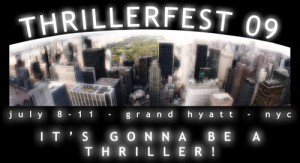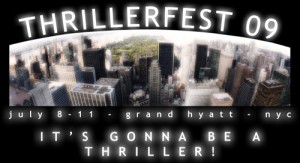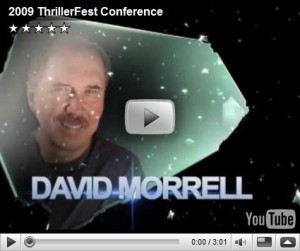Today we welcome our guest James Scott Bell to TKZ. Jim is the author of the Ty Buchanan thriller series – Try Dying, Try Darkness and Try Fear (July 09). His latest standalone, Deceived, was called a "heart-whamming read" by Publishers Weekly. He has taught novel writing at Pepperdine University in Malibu, and at numerous writers conferences. In July he’ll be conducting a workshop on suspense dialogue for the International Thriller Writers CraftFest portion of ThrillerFest in New York. Jim is also the author of two bestselling books in the Write Great Fiction series from Writers Digest Books: Plot & Structure and Revision & Self-Editing. A former trial lawyer, Jim lives and writes in L.A. His website is www.jamesscottbell.com
By James Scott Bell
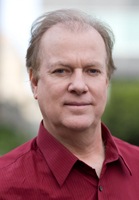 Perhaps you saw the challenge a group of British thriller writers laid down last month. In The Guardian (UK) , Jeffery Archer, Martin Baker, Matt Lynn and Alan Clements declared they are out to end "the reign of the production-line American thriller writers, such as James Patterson, John Grisham and Dan Brown" and return British thrillers to their "rightful prominence."
Perhaps you saw the challenge a group of British thriller writers laid down last month. In The Guardian (UK) , Jeffery Archer, Martin Baker, Matt Lynn and Alan Clements declared they are out to end "the reign of the production-line American thriller writers, such as James Patterson, John Grisham and Dan Brown" and return British thrillers to their "rightful prominence."
Talking a little English smack, Archer said, "The tradition of thriller writing should never be allowed to die. Not least because we are better at it than anyone else in the world."
My thought upon reading that was, We whipped ’em in 1781, and we can do it again.
But I set my musket aside and continued reading. Here’s a clip:
Lynn, author of the military thriller Death Force, said that authors such as James Patterson – who writes, with the aid of a team of co-authors, up to eight books a year – have "drained a lot of the life out of the market". "Look at Fleming, look at Len Deighton – they had a quirkiness to them. Yes they were very popular, and had elements of the formulaic, but there was an edge of originality to them," he said. "All the writers in this group believe in bringing that back … Too many of the American thrillers are just being churned out to a rigid formula. Good writing is never a production line."
"We’re trying to say ‘why would you want to read fairly cynical, ghost-written books which are being pumped out by publishers when there are a lot of good new British writers you could be reading?’" explained Lynn. "We feel the genre has been quite neglected in the last seven to eight years … There haven’t been any new writers coming through. It might be because there aren’t any very good writers, or maybe it’s because publishers and booksellers have been neglecting it – they’ve become obsessed with the big names, and because they’ve got a new James Patterson or John Grisham four to five times a year to put at the front of the bookshop, it crowds out all the new British authors who are coming through."
These writers, who call themselves The Curzon Group, have come up with "five principles" for writing a thriller. They believe–
1. That the first duty of any book is to entertain.
2. That a book should reflect the world around it.
3. That thrilling, popular fiction doesn’t follow formulas.
4. That every story should be an adventure for both the writer and the reader.
5. That stylish, witty, and insightful writing can be combined with edge-of-the seat excitement.
Let’s take a closer look.
1. That the first duty of any book is to entertain.
Check. Without that, nothing else matters, because no one is reading you. And note that entertainment does not mean fluff. Being "caught up in the story" can happen in many ways and in myriad genres.
Our top thriller writers clearly entertain. Look at what’s being read on any given plane on any given day. For a read that gets you caught up in the fictive dream, we Americans are certainly holding our own, wouldn’t you say?
2. That a book should reflect the world around it.
 I’m not sure what this means. Social comment? Message? Verisimilitude? You can take it a number of ways.
I’m not sure what this means. Social comment? Message? Verisimilitude? You can take it a number of ways.
I do think a thriller has to "reflect" the world to the extent it establishes the feeling of reality, that the events in the story could happen. How well you do this is a matter of individual style, and avoiding things that could pull readers out of the story.
But this is SOP for any fiction writer, not just those who do thrillers. I’m not sure this principle moves the debate along.
What do you think it means?
3. That thrilling, popular fiction doesn’t follow formulas.
Here, I disagree a bit. There is a reason we have formulas in this world: they WORK. Try making nitroglycerin out of egg whites or lip balm out of sandpaper. We use formulas every day. We’re lost without them.
What most critics mean by this jab is "formulaic," which is a euphemism for "by the numbers" or otherwise without original content and style.
And we’d agree. Thrillers need formula, but should never be formulaic.
So what’s the formula?
For one thing, somebody has to be in danger of death. (I’ve talked elsewhere about the three types of death—physical, professional and psychological. For most thrillers, physical is on top).
Another ingredient: an opposition force that is stronger than the Lead. If not, the reader won’t care about the stakes.
And the Lead has to be a character we care about deeply. Not perfect, and not necessarily all good (think: Dirty Harry). We just have to care, and there are things you do and don’t do to forge that reader connection.
What keeps a thriller from being by-the-numbers is the freshness you bring to it by way of character, voice, style, and the arrangement of plot elements.
Take A Simple Plan by Scott Smith. A tried and true formula: innocent man finds forbidden treasure, succumbs to greed, disaster results (the death overhanging this novel is psychological death, which the Lead and his wife suffer by the end). That story’s been done over and over. But Smith brought to it compelling characters in complex relationships, and a style that drives you relentlessly from chapter to chapter.
Or the film The Fugitive. Innocent man on run from the law. Formula! But what they did with both Richard Kimble (Harrison Ford) and especially Sam Gerard (Tommy Lee Jones) turned it into a classic thriller. We’ll never forget Sam’s line, "I don’t care!" Or the beat where Kimble, trying to get out of Cook County Hospital without being recognized, puts his own troubles on hold to help a kid in the emergency ward.
When the film was over, and Sam does care, we’ve been taken on an almost perfect thrill ride.
4. That every story should be an adventure for both the writer and the reader.
Check. For the writer of thrillers, that means taking a risk in each book, somehow. Stretching the muscles. For example, I love that Harlan Coben has taken Myron Bolitar international in his latest. I’m sure you have your favorite examples, too (what are they?)
No adventure in the writer, no adventure in the reader.
5. That stylish, witty, and insightful writing can be combined with edge-of-the seat excitement.
Who is going to argue with that?
 I’d aver, however, that style cannot overcome a weak story construct. So while I’m at it, let me put in a good word for Patterson, who has been castigated by so many. His concepts are terrific. He knows story at the fundamental level. His books wouldn’t do nearly so well without the solid scaffolding of the basic premise.
I’d aver, however, that style cannot overcome a weak story construct. So while I’m at it, let me put in a good word for Patterson, who has been castigated by so many. His concepts are terrific. He knows story at the fundamental level. His books wouldn’t do nearly so well without the solid scaffolding of the basic premise.
Before I can start outlining or writing, I have to have a logline that excites me, that calls up all sorts of possibilities in my mind. That’s something Patterson, Grisham and Brown also have as the baseline of their books. And so do all successful thriller scribes, as far as I can see.
Our team, the American thriller writers, do pretty well after all. So if the Brits want to have a contest, I say: Bring it.
I’m in.
Any other takers?
And what do you think of the five principles?
~~~~~~~~~~~~~~~~~~
Coming up on our Kill Zone Guest Sundays, watch for blogs from Sandra Brown, Steve Berry, Robert Liparulo, Thomas B. Sawyer, Paul Kemprecos, Linda Fairstein, Oline Cogdill and more.

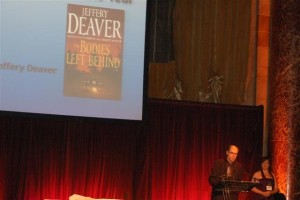
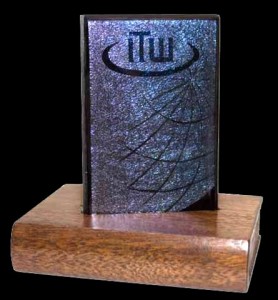
![Thrillerfest D3 '09 (Alan Jacobson) (194) [640x480] Thrillerfest D3 '09 (Alan Jacobson) (194) [640x480]](https://killzoneblog.com/wp-content/uploads/2009/08/ThrillerfestD309AlanJacobson194640x4-300x200.jpg)
